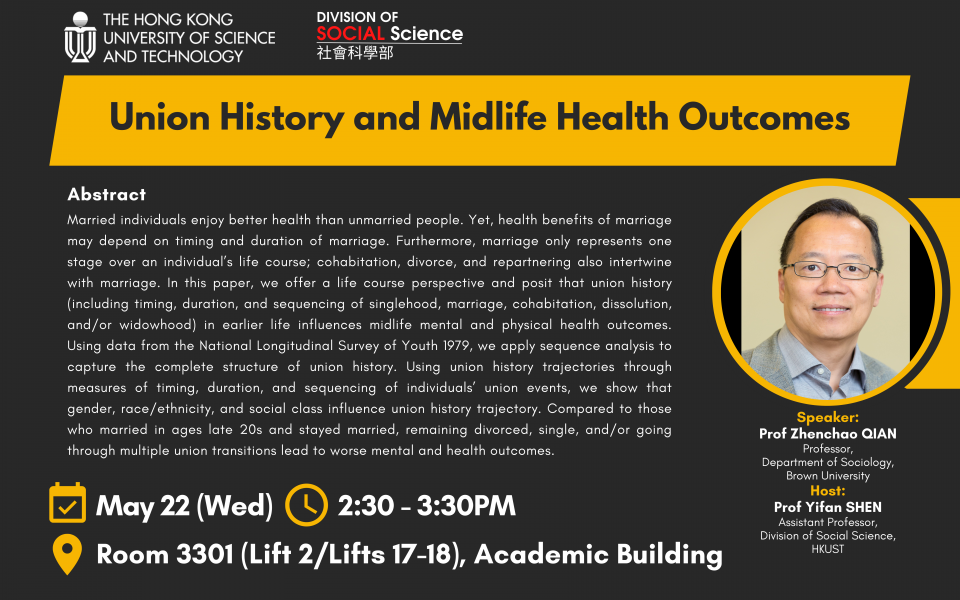Union History and Midlife Health Outcomes
Married individuals enjoy better health than unmarried people. Yet, health benefits of marriage may depend on timing and duration of marriage. Furthermore, marriage only represents one stage over an individual’s life course; cohabitation, divorce, and repartnering also intertwine with marriage. In this paper, we offer a life course perspective and posit that union history (including timing, duration, and sequencing of singlehood, marriage, cohabitation, dissolution, and/or widowhood) in earlier life influences midlife mental and physical health outcomes. Using data from the National Longitudinal Survey of Youth 1979, we apply sequence analysis to capture the complete structure of union history. Using union history trajectories through measures of timing, duration, and sequencing of individuals’ union events, we show that gender, race/ethnicity, and social class influence union history trajectory. Compared to those who married in ages late 20s and stayed married, remaining divorced, single, and/or going through multiple union transitions lead to worse mental and health outcomes.
Zhenchao Qian is Professor of Sociology and Faculty Associate of Population Studies and Training Center at Brown University. He received his PhD in Sociology and Demography from University of Pennsylvania. He taught at Arizona State University and The Ohio State University before joining Brown in 2015. Dr. Qian has published on topics in social demography, stratification, and inequality among top journals in sociology and demography, including American Sociological Review, Demography, Journal of Marriage and Family, and Social Forces. His research explores partner availabilities, assortative mating, patterns and trends of marital and cohabiting unions among diverse populations. He studies ethnoracial boundaries with a focus on changes in interracial and interethnic unions and racial classification of multiracial individuals. He also explores the relationship between life course union history and midlife health outcomes, immigrants’ union formation and socioeconomic wellbeing, divergent patterns of American families, and social and family change in China. He has been a PI or co-PI of grants funded by National Institutes of Health, National Science Foundation, and the Russell Sage Foundation. He is an elected member of the Sociological Research Association and an elected fellow of the American Association for the Advancement of Science.
Host: Prof Yifan SHEN, Assistant Professor, Division of Social Science, HKUST
